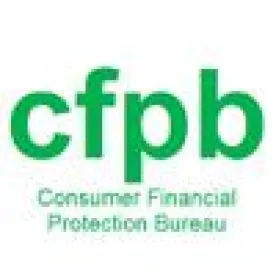On November 13, the Consumer Financial Protection Bureau (CFPB) issued its long-awaited proposal with respect to prepaid cards. This proposal, which consisted of 870 pages, covers traditional prepaid cards as well as mobile and other electronic prepaid accounts that can store funds. The prepaid products covered by the proposal include payroll cards, certain federal, state, and local government benefit cards—such as those used to distribute unemployment insurance, child support, and pension payments—student financial aid disbursement cards, tax refund cards, and peer-to-peer payment products.
The CFPB proposed that card issuers be required to follow existing credit card protections established under the Truth in Lending Act and Credit Card Accountability Responsibility and Disclosure Act if they offer a credit product in connection with a prepaid account. Under the proposal, companies cannot open a credit card account or increase a credit line related to a prepaid card unless they consider the consumer’s ability to make the required payments. For consumers under the age of 21, the companies would be required to assess these consumers’ independent abilities to repay the credit. Prepaid companies would be required to give consumers the same monthly periodic statement that credit card consumers receive. This statement would detail consumers’ fees, and if applicable, interest rates, what they have borrowed, how much they owe, and other key information about repaying the debt. Further, prepaid companies must give consumers at least 21 days to repay their debt tied to a prepaid card before charging a late fee that is “reasonable and proportional” to the violation of the account terms, and the total fees for a prepaid credit during the first year cannot exceed 25 percent of the credit limit. Prepaid companies could not automatically demand and take credit repayment whenever a prepaid account is next loaded with funds, nor could they take funds loaded into the prepaid account to repay the credit when the bill is due unless the consumer has affirmatively opted in to allow such a repayment. Finally, the CFPB’s proposal would require companies to wait 30 days after a consumer registers the prepaid account before they could formally offer credit to the consumer.
The CFPB also is proposing that consumers be responsible for no more than $50 of unauthorized charges so long as they quickly report the activity to the financial institution.
Under the CFPB proposal, financial institutions would be required to either provide periodic statements or make account information easily accessible online and for free, and would also have to investigate errors that consumers report on registered accounts and to resolve those errors in a timely manner. If the financial institution cannot resolve an alleged error within a certain period of time, it would be required to temporarily credit the disputed amount to the consumer to use while the institution finishes its investigation. Prepaid card issuers also must post their account agreements on their websites and submit them to the CFPB for posting on an agency-maintained website.
While consumer groups voiced pleasure with the proposal at the public hearing conducted in connection with the proposal as a “good first step,” it is expected that they will push for further protections, particularly in the area of overdrafts, which some groups feel ought to be completely prohibited in the prepaid card context. With respect to disclosure, the proposal would require card issuers to use model forms allowing apple-to-apple comparisons between cards. The CFPB’s proposal includes two required forms, one short and one long; the short form would highlight key prepaid account information, including common costs like the monthly fee, fee per purchase, ATM withdrawal cost, and fee to reload cash onto the account. The long form would contain all of the fees on the short form, plus any other potential fees that could be imposed in connection with the account.
The proposal will be open for comment for 90 days after it’s published in the Federal Register, which is expected soon.
The proposed regulation may be viewed here.



 />i
/>i
